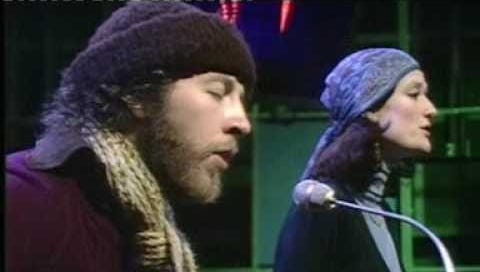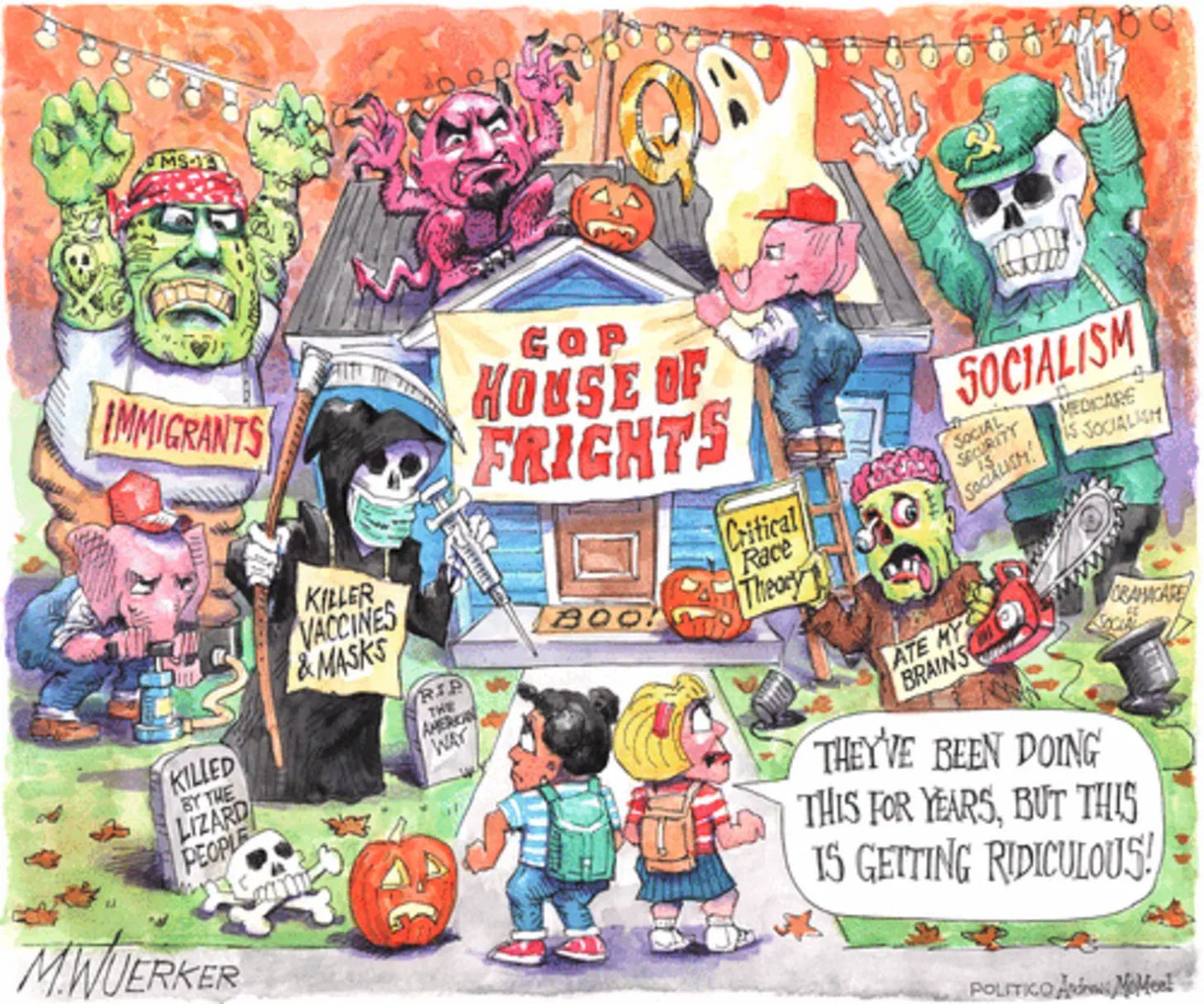A few months back, when I offered a joint Music Profile on Sandy Denny and Richard Thompson in their Fairport years, I promised I would return with separate tributes to what followed for each of them: just a few years in Sandy’s sad case, but 50 years and counting for RT. I completed Sandy a couple of weeks back, and now Richard today. While I have continued to catch him live every few years, I have not kept up with most of his records since the late-90s, so this collection breaks off before then (although I read his excellent new memoir this year). Enjoy, share, comment, subscribe—it’s still, somehow, free. First, the usual cartoons…
Richard Thompson (Solo and with Linda) 1971-1991
Before we go any further, this saga actually begins with Richard sticking with Fairport for one more album after Sandy Denny’s abrupt 1970 exit, the wonderful Full House. Here is a live version of RT’s epic guitar workout “Sloth.”
His first solo effort, Henry, the Human Fly, was said to be—accurate or not—the lowest selling album in the history of Warner/Reprise, which is saying a lot, given their eclectic catalog. That cover image didn’t help. Still, it featured a few fine tunes, including “The Angels Took My Racehorse Away,” with guest vocals from Sandy Denny and someone named Linda Peters (soon to be his wife).
The first Richard & Linda Thompson album would appear in 1972, I Want to See the Bright Lights Tonight. The title cut provided their one and only hit single, but since it’s not a particular favorite of mine, I will go instead with “Withered and Died” and then “Calvary Cross.” His songwriting was obviously growing by leaps and bounds, and showcased Linda as the finest Brit singer of the period (next to her good friend Sandy Denny).
The followup Hoky Poky had no hits and was a step back in quality, but did include one of his greatest songs, “A Heart Needs a Home,” here in stellar live version.
By then, Richard had joined a Sufi Muslim community, with Linda (not without issues for her). Their Pour Down Like Silver album in 1975 marked an artistic comeback. “Night Comes In” included extended guitar solos while “Dimming of the Day,” though not prominent at the time, would much later be covered by many, including Bonnie Raitt in a popular version.
Their next lp, First Light, was also fine, and then Sunnyvista presented a more hard-edged and political note, such as in hard-rocking “Borrowed Time.”
All of this was prelude to 1982’s Shoot Out the Lights, the duo’s magnum opus, which sold a little better, and was picked by most critics as one of the ten best albums of the year. Here are a couple of top cuts, “Walking on a Wire” and the title number, live.
By the end of the recording, a marital split was in process (as the front cover suggests), yet they had to go ahead with a tour as it was their first to draw good-sized audiences. Drama ensued on stage and off (Linda may have hit him with a bottle and more), then each launched a solo career. Richard moved to the U.S. for good and did a quick solo acoustic tour and album. His next album, in the studio and with a band, was Hand of Kindness, with the first of several songs that some interpreted as commentary on his busted marriage, “A Poisoned Heart and a Twisted Memory.”
And from the follow-up, Across a Crowded Room, the haunting “When the Spell is Broken.”
And then from Daring Adventures, when he brought in edgier producer Mitchell Froom, not with the best results—as most of the better songs were of the quieter variety, such as the finely-crafted “How Will I Ever Be Simple Again” and “Al Bowly’s in Heaven.”
After a couple more releases, his song “1952 Vincent Black Lightning” would gain much radio play and remains classic RT today and a staple of his concerts, with fancy acoustic guitar picking—below, from a recent year, with one of his usual witty intros.
“Essential daily newsletter.” — Charles P. Pierce, Esquire
“Incisive and enjoyable every day.” — Ron Brownstein, The Atlantic
“Always worth reading.” — Frank Rich, New York magazine, Veep and Succession
Greg Mitchell is the author of a dozen books, including the bestseller The Tunnels (on escapes under the Berlin Wall), the current The Beginning or the End (on MGM’s wild atomic bomb movie), and The Campaign of the Century (on Upton Sinclair’s left-wing race for governor of California), which was recently picked by the Wall St. Journal as one of five greatest books ever about an election. His new film, Atomic Cover-up, just had its world premiere and is drawing extraordinary acclaim. For nearly all of the 1970s he was the #2 editor at the legendary Crawdaddy. Later he served as longtime editor of Editor & Publisher magazine. He recently co-produced a film about Beethoven’s Ninth Symphony.






Thanks for posting this wonderful version of '1952 Vincent Black Lightning'. The combination of an epic song, dazzling acoustic guitar work, and perfect vocal for the song is rarely matched or approached.